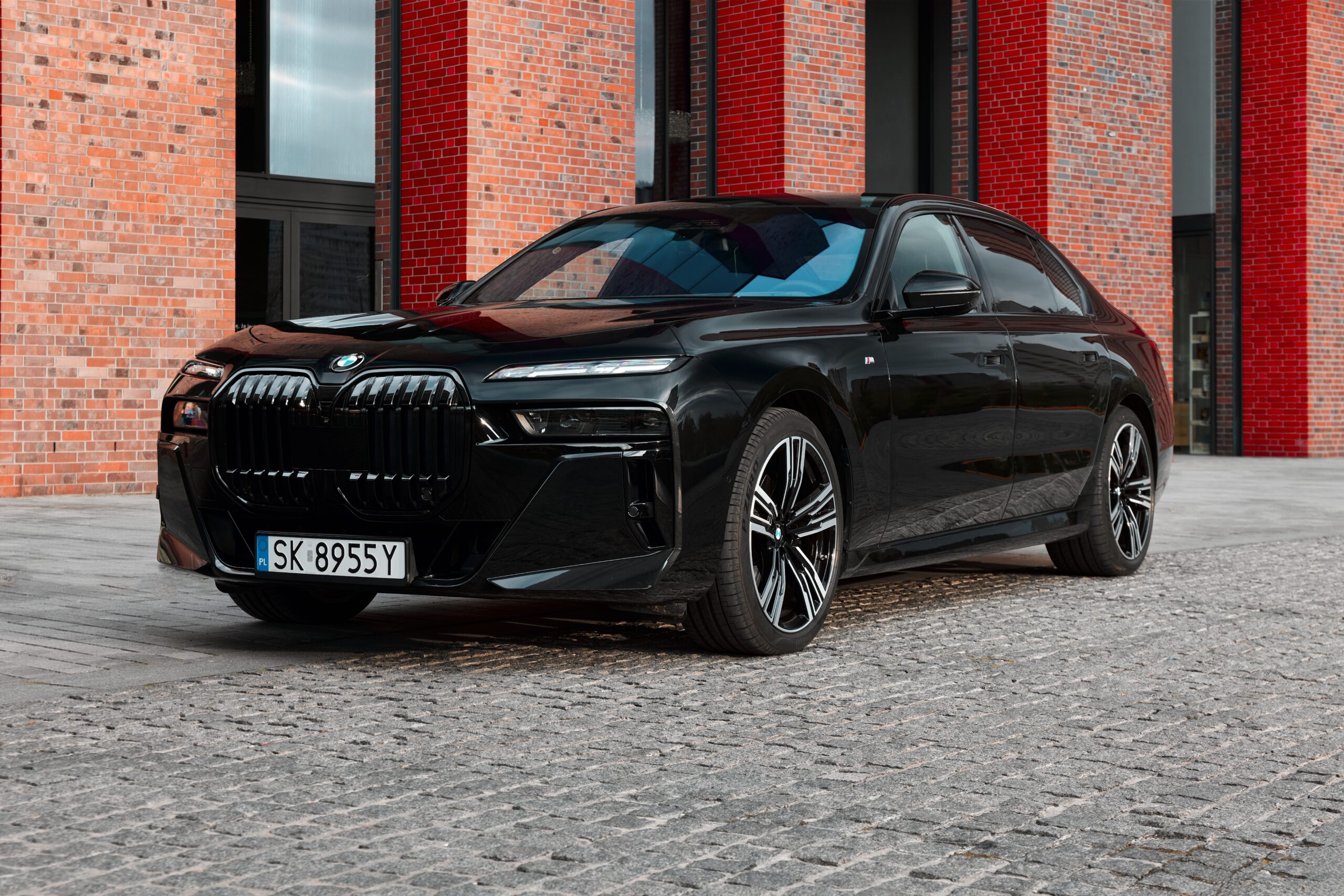We often assume that wealth eliminates the need for freebies, but the reality is surprising. Rich people frequently receive complimentary perks that would cost everyone else a small fortune. These benefits can range from luxurious experiences to everyday conveniences, all while the average person watches with a mix of envy and disbelief. Here are 14 of those enviable goodies that seem to flow effortlessly toward the affluent, leaving the rest of us contemplating the ironies of a wealth-privileged society.
1. VIP Airport Lounges

For frequent travelers with deep pockets, VIP airport lounges offer a sanctuary of tranquility and luxury, often without cost. While the everyday traveler grapples with crowded terminals, the affluent enjoy plush seating, gourmet food, and even spa services. It’s not uncommon for airlines to waive the usual access fees for these lounges as a gesture of appreciation for their high-spending clientele. Meanwhile, others fork over hefty annual fees for a glimpse of this oasis.
According to a report by CNBC, airlines and credit card companies often offer these perks to encourage continued loyalty and spending. This symbiotic relationship underscores the perks of wealth, where the rich are rewarded simply for being able to spend more. Meanwhile, the rest of us are left calculating whether the occasional lounge visit justifies the annual membership cost. It’s a classic case of the rich getting richer in comfort and style.
2. Personal Assistants

Hiring a personal assistant may sound like a luxury, but for the wealthy, it’s a perk that sometimes comes gratis. High-net-worth individuals often receive this benefit as part of executive compensation packages. While the rest of us juggle work, life, and laundry, the affluent delegate these tasks to someone else at no additional cost. It’s a trade-off where time, the ultimate luxury, is bought with money but sometimes provided as a bonus.
The average person, on the other hand, must rely on time management skills and occasionally paid help to keep life organized. In an age where work-life balance is a golden dream, the disparity in access to personal assistance feels stark. The irony lies in the fact that those who can afford to pay for it often don’t have to. It’s a testament to how wealth can provide not just comfort, but also the freedom to focus on what truly matters.
3. Exclusive Event Invitations

When it comes to exclusive events, the wealthy often find themselves on the guest list without having to lift a finger. Be it fashion shows, premiers, or charity galas, these invites come as a result of their status and connections. These events offer not just entertainment, but networking opportunities that can further boost their influence and wealth. For everyone else, access usually comes with a hefty price tag or an impressive networking feat.
A study by the University of Chicago highlighted how access to exclusive events can create networks that lead to further financial opportunities. This cycle of access and wealth perpetuates a system where the rich continue to expand their influence effortlessly. Those without such invitations find themselves on the outside looking in, often needing to pay for the privilege of mingling in such circles. It’s a classic example of how the world’s elite continually exchange social currency for tangible benefits.
4. Complimentary Designer Gifts

In the world of high fashion, complimentary designer gifts are commonly showered upon the elite. Designers often send their latest collections to celebrities and affluent clients, hoping for a snapshot or mention. This clever marketing strategy costs wealthy recipients nothing, while the rest of us save up for months to afford a single piece. The irony is that those who can easily afford these items often receive them for free.
These gifts aren’t just about generosity; they’re strategic moves by brands to associate themselves with influential figures. For others, owning these luxury items involves careful budgeting or even sacrifice. It’s a stark reminder of how wealth creates a loop of continuous privilege, where receiving high-end goods becomes an expected part of life rather than a special occasion. The practice highlights a lifestyle where luxury is both a cause and effect of financial success.
5. Free Financial Advice

The wealthy frequently enjoy personalized financial advice at no cost, thanks to the benefits offered by private banks and wealth management firms. While others pay significant fees for sound financial guidance, the affluent receive it as part of their high-net-worth account services. This advice can lead to better investment strategies, tax savings, and overall wealth growth. It’s a classic cycle where the rich are equipped to become even richer with expert guidance.
According to Bloomberg, private banking and wealth management services often waive fees for clients meeting high asset thresholds. This free access to financial wisdom is a stark contrast to what many people experience when seeking financial planning. While the affluent receive tailored advice, others may struggle to find affordable, unbiased recommendations. The disparity underscores a financial system where access to guidance can significantly impact one’s ability to grow wealth.
6. Luxury Car Leases

For the wealthy, driving a luxury car often involves little to no personal expense. Luxury car brands frequently offer complimentary or heavily discounted leases to wealthy clients as a means of showcasing their latest models. It’s both a status symbol and a marketing strategy, ensuring that these cars are seen in the right neighborhoods and circles. Meanwhile, many people save for years to afford the down payment on a car that won’t turn heads.
These exclusive leases are a testament to how prestige and wealth go hand in hand. The average car buyer must navigate interest rates, monthly payments, and insurance costs to maintain their mode of transportation. In contrast, the affluent enjoy the thrill of driving a high-end vehicle without the financial burden. It’s an emblem of a world where luxury is both a gift and an expectation for those with the right connections.
7. Exclusive Healthcare Access

Healthcare is one of those areas where the divide between rich and everyone else is strikingly evident. The affluent often have access to exclusive healthcare services, including private clinics and top-tier specialists, without the usual wait times or bureaucratic obstacles. These premium services are sometimes offered as part of executive health benefits or high-net-worth insurance plans. For the rest, navigating the healthcare system can be a costly and time-consuming affair.
A report by the Journal of Economic Perspectives reveals how this disparity in healthcare access can affect outcomes significantly. While the wealthy receive prompt and personalized care, others may face delays that impact their health. It highlights a crucial area where wealth not only enhances quality of life but can also be a determinant of longevity. Access to superior healthcare is a powerful reminder of the advantages that come with financial privilege.
8. First-Class Upgrades

Flying first class can be an eye-wateringly expensive experience for most, yet for the wealthy, it often comes as a complimentary upgrade. Airlines frequently offer these upgrades to their top spenders as a token of appreciation for their loyalty and expenditure. While the rest of us weigh the cost of extra legroom against our budget, the affluent stretch out in comfort at no extra charge. It’s a clear advantage in the world of frequent flying.
The luxury of first class isn’t just about space; it’s about the enhanced experience from start to finish. For everyone else, such comfort often remains a distant dream or the result of extensive planning and saving. Meanwhile, the wealthy enjoy the perks of premium travel without lifting a finger. It’s another example of how money can smooth life’s rough edges in the most delightful ways.
9. Concierge Services

Concierge services represent yet another perk of wealth, often provided free of charge by luxury credit cards or exclusive memberships. Whether it’s securing reservations at fully booked restaurants or planning the perfect vacation, these services handle it all. The wealthy enjoy these conveniences effortlessly, while others might struggle through endless calls and coordination. It’s a life where someone else takes care of the details, leaving more time to savor the moment.
For those without such services, planning can be a time-consuming and often frustrating endeavor. The average person juggles various apps and resources to pull together the same experience. In contrast, the affluent merely make a request and wait for it to be fulfilled. This access to personal assistance underscores the lifestyle gap between the haves and the have-nots, where time and convenience are as much a symbol of wealth as the money itself.
10. Invitations to Private Sales

The wealthy are often invited to private sales where they gain first access to high-demand luxury goods at discounted prices. These events can include everything from designer clothing to fine art and are typically reserved for a select clientele. While others wait for public sales or end-of-season discounts, the affluent enjoy the privilege of choice and exclusivity. It’s a shopping experience that reinforces the allure of wealth and status.
Private sales are more than just shopping; they are events that combine luxury with exclusivity, creating a unique social environment. For those on the outside, accessing such perks often requires insider connections or substantial financial investment. The disparity highlights how wealth creates opportunities that extend beyond material gains to social and experiential advantages. It’s a world where even spending money is a curated experience.
11. Complimentary Club Memberships

Country clubs and elite gyms often offer complimentary or heavily discounted memberships to wealthy patrons. These memberships provide access to luxurious amenities, networking opportunities, and social events. For everyone else, joining such clubs usually involves a significant financial commitment. It’s a stark reminder of how the affluent enjoy privileges that can foster both personal satisfaction and professional growth.
These memberships are more than just recreational; they serve as gateways to influential circles and potential business opportunities. For those who pay full price, the decision to join such clubs often involves weighing the cost against the potential social and career benefits. Meanwhile, the wealthy seamlessly integrate these experiences into their lifestyles. It’s a striking example of how financial status can open doors to exclusive worlds.
12. Priority Access to Cultural Events

In the realm of arts and culture, the wealthy often receive priority access to the best seats at concerts, theater performances, and art exhibitions. This privileged access can come as part of sponsorship deals or elite memberships. While the general public vies for tickets or settles for less desirable seats, the affluent enjoy the best views and experiences. It’s an advantage that enhances their cultural engagement without the usual logistical hurdles.
These cultural experiences are not just about entertainment; they represent a way to stay connected to the creative pulse of society. For others, attending such events often involves careful planning and compromise. The discrepancy highlights a cultural divide where access to premier experiences is another layer of wealth’s allure. It’s a testament to how money can enrich life in ways that go beyond material possessions.
13. Networking Opportunities

Networking events that feature industry leaders, influencers, and celebrities often extend invitations freely to the wealthy. These events are not just social gatherings but are incubators of ideas, partnerships, and business ventures. For the rest, access typically requires substantial financial outlay or professional clout. It’s another area where the affluent can expand their influence with minimal effort.
Such events are breeding grounds for innovation and collaboration, offering the affluent a distinct advantage in staying ahead. For those less financially endowed, gaining entry can involve navigating a labyrinth of restrictions or expenses. The disparity illustrates how wealth facilitates access to people and opportunities that can perpetuate success. In a world where connections are key, the rich often find themselves at the center of the network effortlessly.
14. Access to Exclusive Education

When it comes to education, the wealthy often have access to exclusive, prestigious institutions without the usual financial strain. Elite schools and universities sometimes offer scholarships or reduced fees to attract high-profile families. For others, gaining entry involves navigating competitive admissions and substantial tuition costs. It’s a privilege that ensures the next generation continues the cycle of affluence.
The educational opportunities available to the wealthy go beyond academics; they offer invaluable networks and life experiences. Meanwhile, the average family may face financial hardships to provide similar opportunities for their children. This disparity in educational access underscores a critical area where wealth influences future success. It’s a poignant reminder of how financial resources shape not just current lifestyles but future potentials.
This article is for informational purposes only and should not be construed as financial advice. Consult a financial professional before making investment or other financial decisions. The author and publisher make no warranties of any kind.








